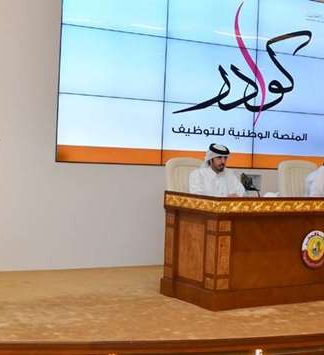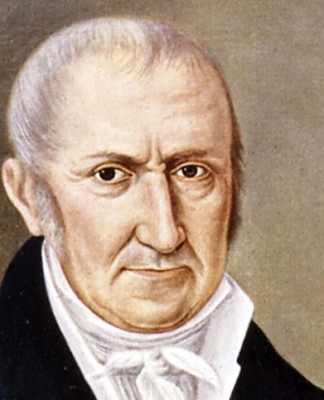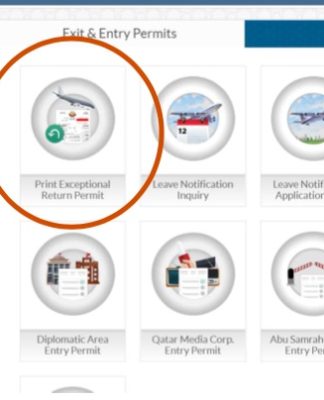
Cheque dishonor may attract a punishment of three months to three years of imprisonment.
As per Article 357 of the Qatar Penal Code, whoever draws in bad faith a cheque without sufficient funds or who, after giving the cheque withdraws all or part of the funds, so that the remaining balance is insufficient to cover the amount of the cheque, or gives an order to the drawee to stop payment, or deliberately writes or signs the cheque in such a manner as to make it dishonour shall be sentenced to imprisonment or fine or both.
Accordingly whoever, irrespective personal or representing company, issue / sign a cheque without sufficient balance shall be punished. When cheques are issued on behalf of the company, the case shall be filed against the signatory of the cheque and also against authorised signatory of the Company.
By an order of the prosecutor the signatory shall be prevented from travelling and the case shall be referred to the competent court. There is no legal provision favouring the signatory (though signed the cheque representing the company) to claim discharge from criminal charges. Moreover under Article 605 of the Commercial Laws, the public prosecution shall publish the names of convicted persons in the official gazette stating their professions, places and sentences in the event of conviction in one of the crimes of the cheque provided for in the Penal Code.
However the criminal case shall terminate if payment is made or assignment is established after commission of the offence and before a final ruling is made in respect thereof. If this occurs after the ruling became final, its enforcement will be seized.
Grant of Power of Attorney
According to Qatar Civil Laws power of attorney / authorisation must be in the form required for the legal act forming the object of the power of attorney. The grant of power of attorney inside Qatar requires authentication of the power of attorney before Qatar Ministry of Justice officials on the prescribed “notarisation” format. However issuing a power of attorney outside Qatar for use inside Qatar requires that the power of attorney be notarised, attested, and consularised to the level of the Qatari Embassy in the country of origin, before it is re-attested by the Ministry of Foreign Affairs in Qatar.
Alcohol, Drink and drive
According to Article 270 of the Qatar Penal Laws, anyone who drinks any alcoholic beverages in a public place shall be subject to a penalty of not more than six months and to a fine of not more than three thousand Riyals or to one of these two penalties. The same penalty is imposed on anyone who is found drunk on a main street or anyone who disturbs others due to intoxication.
Driving under the influence of alcohol is punishable by a prison sentence of between one month and three years, a fine of QR 10,000 to QR 50,000 or both. Offenders may also be deported.
Forged documents
Article 204 of the Qatar Penal code defines Forgery. Forging a document means altering the truth thereof so that such alteration results in causing damage but with the intention of using it as a genuine document.
Under Article 206, anyone who forges an official document is convicted to no more than ten years in prison. If a public employee commits forgery during or due to his job, he is convicted to no more than fifteen years in prison. The penalty of forging an unofficial document is no more than three years in prison.
Bribery
It is an offence to offer an official money or a benefit of any kind in order for him to perform or omit to perform a duty assigned. It is also an offence to solicit or accept bribes, for themselves or others. If found guilty, the briber and the bribed shall be punishable with imprisonment for a term which shall be not exceed ten years and a fine not exceeding the amount offered or accepted, provided that it shall not be less than five thousand Riyal. The same penalty shall apply to the intermediary between the briber and the bribed.
Illegal Employment
An employee is also not allowed to work for another employer with or without remuneration. Workers employed with a company or household other than their employer or employing a worker who is not under their sponsorship and working in a job which the residence permit does not allow, attract a fine of QR 20,000.
Absconding workers
A person who gives employment or shelter to absconding workers shall be liable for imprisonment and payment of a fine ranging from QR 20,000 to QR 100,000.
If an absconding domestic servant on a personal sponsorship is arrested or surrenders voluntarily within 30 days from the date of the filing of the first information report (FIR) by the sponsor, the sponsor has to bear the cost of air ticket to deport the person to his or her native country. However, if the person is arrested after 30 days, the matter becomes sub-judice and is referred to the public prosecutor for instituting legal procedures.
Resident Permit Renewal
Workers are given 90 days to renew their residence permit (RP) after its expiry. Workers who either fail to obtain a residence permit or fail to renew it have to pay QR 10 per day as fine for each day of delay subject to the maximum fine of QR 6,000.
A newborn is required to apply for the residence permit within 60 days of birth or arrival in the country and if they failed, shall be liable to pay fine of QR 10 per day for such violation to a maximum of QR 3600.
Exit the country
An expatriate should leave the country at the end of his entry or residency purpose or at the end of his employment or upon cancellation of his sponsorship, within ninety days from the date of the end of such employment or from the date of cancelling such a sponsorship.
If the worker does not leave the country within 90 days after the expiry of his work visa shall be liable to remit the fine of QR 6,000.
Overstay
Visitors who arrive on a 30-days visit visa shall be fined QR 200 per day for each day of overstay. The maximum fine in this case, however, shall not be exceed QR 20,000.
Last rites
The employer is legally bound, to pay for the last rites of an employee who dies in Qatar regardless of the cause of death. The sponsor has to bear expenses if the latter’s legal heirs wish to repatriate the mortal remains to his home country.
Bank Loans & Guarantors
While availing or guaranteeing bank loans, be aware that bank may ask full repayment even without any cause at any time; and termination of employment or transfer of employment shall not be of rescue.
Loans offered by banks to salaried employees are usually of two forms Guaranteed and Non-guaranteed. A Guaranteed loan in which the employer agrees with the bank to provide its employees with loans and the employer then acts as a guarantor that the loan will be paid. In such case if the borrower employee fails a payment, it will then become employer’s responsibility to fully pay on their behalf.
A non-guaranteed loan is one where the employer does not act as a guarantor that the loan will be paid and if the employee fails to pay the loan, the bank can take the necessary steps to recover the loan from the said employee including legal action.
Briefly in commercial law terms, a guarantor is a person who guarantees to pay for someone else’s debt if he or she should default on a loan obligation. A guarantor acts as a co-signor of sorts, in that they pledge their own security or services if a situation arises in which the original debtor cannot perform their obligations.
Medical Services
In order to receive medical treatment from State run hospitals, it is necessary for foreign residents to obtain health cards issued by the Ministry of health for a nominal fee. There are many public health centers throughout Qatar. They provide medical treatment to nationals for free, but charge a nominal fee to non-nationals. There are many doctors in private practice.
Official Language of courts
According to Article 68 of the procedural laws, Arabic is the official language in the courts, but the courts will also admit evidence given by non-Arabic litigants and witnesses through an interpreter, who are required to take an oath and obliged to observe all honesty, integrity and sincerity.







 ‘SELL AMERICA’ PANIC: World is Quickly Ditching US Assets as…
‘SELL AMERICA’ PANIC: World is Quickly Ditching US Assets as…


















